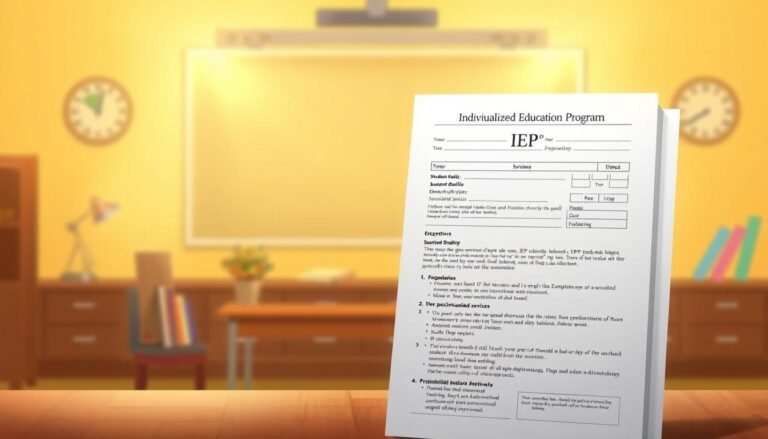
Shining a Light on Learning Disabilities: The Essential Importance of Early Diagnosis
Introduction
Imagine a world where every child is surrounded by a network that recognizes their unique potential and addresses their learning challenges before they escalate into larger barriers. This is not just a dream but an achievable reality through a crucial process: early diagnosis of learning disabilities. Shining a Light on Learning Disabilities: The Importance of Early Diagnosis emphasizes the pressing need for parents, educators, and society at large to understand and act upon the signs of learning disabilities in children as early as possible. In this article, we will explore the many dimensions of this important topic, highlighting case studies, relevant data, and the profound impact early intervention can have on a child’s educational journey and overall well-being.
Breaking Down Learning Disabilities
What Are Learning Disabilities?
Learning disabilities (LDs) refer to a range of disorders that affect how individuals process information, which can impact their ability to read, write, speak, or do math. These disabilities are neurodevelopmental and often go hand in hand with challenges in attention, memory, and social skills. It’s essential to differentiate between learning disabilities and intellectual disabilities; a child with a learning disability may have average or even above-average intelligence, but they struggle in specific areas of learning.
Signs and Symptoms
Common signs of learning disabilities can include:
- Difficulty reading, writing, or calculating math problems accurately.
- Trouble with time management or planning.
- Inconsistent performance on tests or assignments.
- Difficulty following instructions or remembering sequences.
Recognizing these signs is critical. Information about these symptoms can allow educators and parents to intervene early. Identifying LDs is the first step—shining a light on them is the second.
The Importance of Early Diagnosis
Why Early Diagnosis Matters
Shining a Light on Learning Disabilities: The Importance of Early Diagnosis cannot be overstated. Research shows that children diagnosed with learning disabilities as early as kindergarten or first grade show significantly more improvement in academic achievement than those diagnosed later. Early interventions can include specialized teaching strategies, individualized education plans (IEPs), therapeutic support, and a supportive environment which can provide the child with the right tools to overcome challenges.
The Long-term Benefits
Improved Academic Performance: Early diagnosis leads to timely support strategies that cater to the child’s specific needs. This often results in improved grades and a better understanding of curriculum material.
Enhanced Self-esteem: When children receive support and accommodations tailored to their learning style, they begin to see success rather than repeated failure, which can significantly boost self-esteem.
Increased Engagement: Children who struggle with learning disabilities may feel alienated in traditional classroom settings. Early support can help them engage and participate actively in their education.
- Better Emotional Regulation: With guidance and tools from early interventions, children learn strategies to cope with frustration and anxiety, which often accompany learning challenges.
Case Study: Emma’s Journey
Take, for example, the story of Emma—a bright, spirited child who, at the age of six, struggled with reading and writing. After teachers noted her frustration during reading groups, her parents sought an evaluation. Diagnosed with dyslexia, Emma was provided with specialized reading interventions and accommodations. By the end of the school year, her reading skills improved considerably, leading to increased confidence and participation in class.
Analysis: Emma’s case illustrates the direct correlation between early diagnosis and positive academic outcomes—an emphasis on early intervention made all the difference.
Common Misconceptions About Learning Disabilities
Misunderstanding learning disabilities is common, and these misconceptions can lead to late diagnoses, misunderstanding of support needs, and hindered child development.
Myth 1: Learning Disabilities Are the Same as Intellectual Disabilities
Fact: Learning disabilities do not reflect a child’s intelligence level. A child may have a learning disability and excel in other areas.
Myth 2: Learning Disabilities Will Be Outgrown
Fact: While children may develop coping mechanisms, the underlying difficulties often persist into adulthood without early intervention.
Myth 3: Only Teachers Should Look for Signs
Fact: Parents and caregivers play a crucial role in identifying learning disabilities. An observant parent can notice difficulties at home before they manifest in school settings.
Myth 4: Labeling a Child is Harmful
Fact: A diagnosis can provide a pathway to essential resources, support, and tailored interventions that promote a child’s success.
The Role of Schools and Educators
Creating a Supportive Environment
Educators play a vital role in the early detection and intervention of learning disabilities. By maintaining open communication with parents and employing assessments, teachers can identify struggling students and initiate the necessary support strategies.
Professional Development
Ongoing training in recognizing and understanding learning disabilities can empower educators to create inclusive classrooms where every student can thrive. This includes learning about different teaching methods and how to implement IEPs effectively.
Case Study: The Shining Star Academy
The Shining Star Academy implemented a school-wide initiative focused on training teachers on recognizing learning disabilities. By utilizing targeted assessments, they identified struggling students earlier than before and provided tailored instruction.
Analysis: This initiative led to improved student performance across the board, proving that professional development and early identification creates a ripple effect that benefits all students.
The Role of Parents and Caregivers
Being Advocates
Parents must advocate for their children’s needs within the educational system. By familiarizing themselves with LD signs and seeking early evaluations, they can play an active role in their child’s educational journey.
Resources for Parents
- School Psychologists: Engage with school psychologists to understand the evaluation process and necessary steps.
- Support Groups: Connecting with other parents can offer valuable insights and emotional support during the journey.
- Educational Resources: Utilize online platforms and organizations that specialize in learning disabilities to broaden understanding and access resources.
Conclusion
Shining a Light on Learning Disabilities: The Importance of Early Diagnosis is a call to action for parents, educators, and society. Early detection and intervention can transform a child’s educational experience, leading to better academic performance, higher self-esteem, and greater engagement. Understanding learning disabilities not only helps in the academic realm but also fosters emotional stability and overall well-being in children.
These children are not defined by their challenges but are empowered by the support and understanding they receive. By shining a light on learning disabilities, we not only improve individual outcomes but enrich our communities as a whole. Actionable steps can start today—whether you’re a parent, teacher, or simply a concerned citizen, your involvement can make a world of difference.
Frequently Asked Questions (FAQs)
1. What are the first signs of a learning disability?
Common signs include difficulties with reading, writing, math, and trouble following instructions. Observing how a child reacts in an academic setting can often provide insights.
2. How can I approach teachers about my concerns regarding my child?
Start by documenting specific behaviors and struggles you’ve observed. Request a meeting to discuss your observations, focusing on collaboration for your child’s benefit.
3. Is there a specific age when learning disabilities can be diagnosed?
Learning disabilities can often be identified in preschool-aged children, although formal diagnosis tends to occur in elementary school when academic expectations increase.
4. What interventions are available for children diagnosed with learning disabilities?
Interventions can include special education programs, one-on-one tutoring, speech therapy, and accommodations such as extra time on tests or alternate assignment formats.
5. Will my child need special education services for life?
Many children can successfully transition out of special education services as their skills improve, especially with early intervention. Each child’s journey is unique.
6. Where can I find additional resources for learning disabilities?
Organizations like the Learning Disabilities Association of America (LDA) provide resources for parents, educators, and individuals to better understand learning disabilities.
In conclusion, let us come together to shine a light on learning disabilities, embracing the importance of early diagnosis as a pathway to inclusivity, understanding, and success for all children.
















